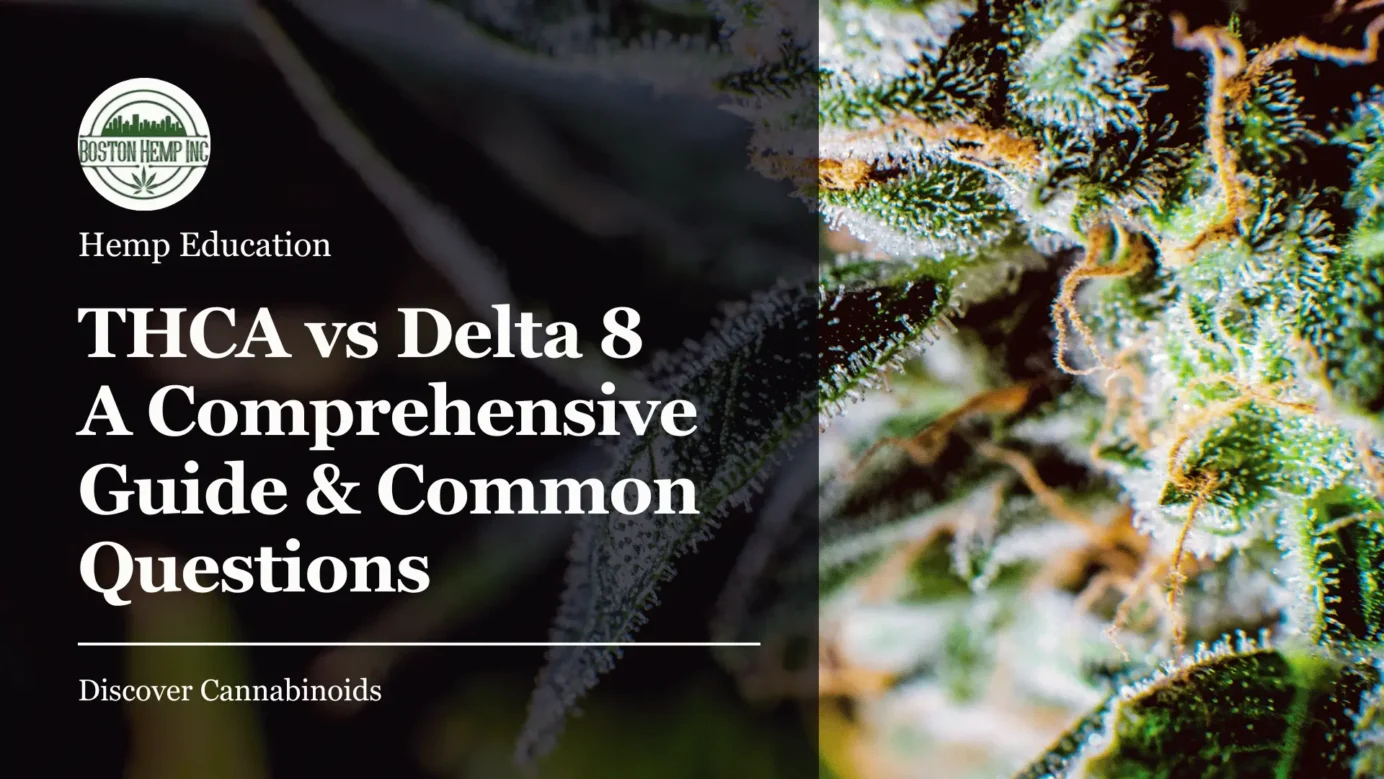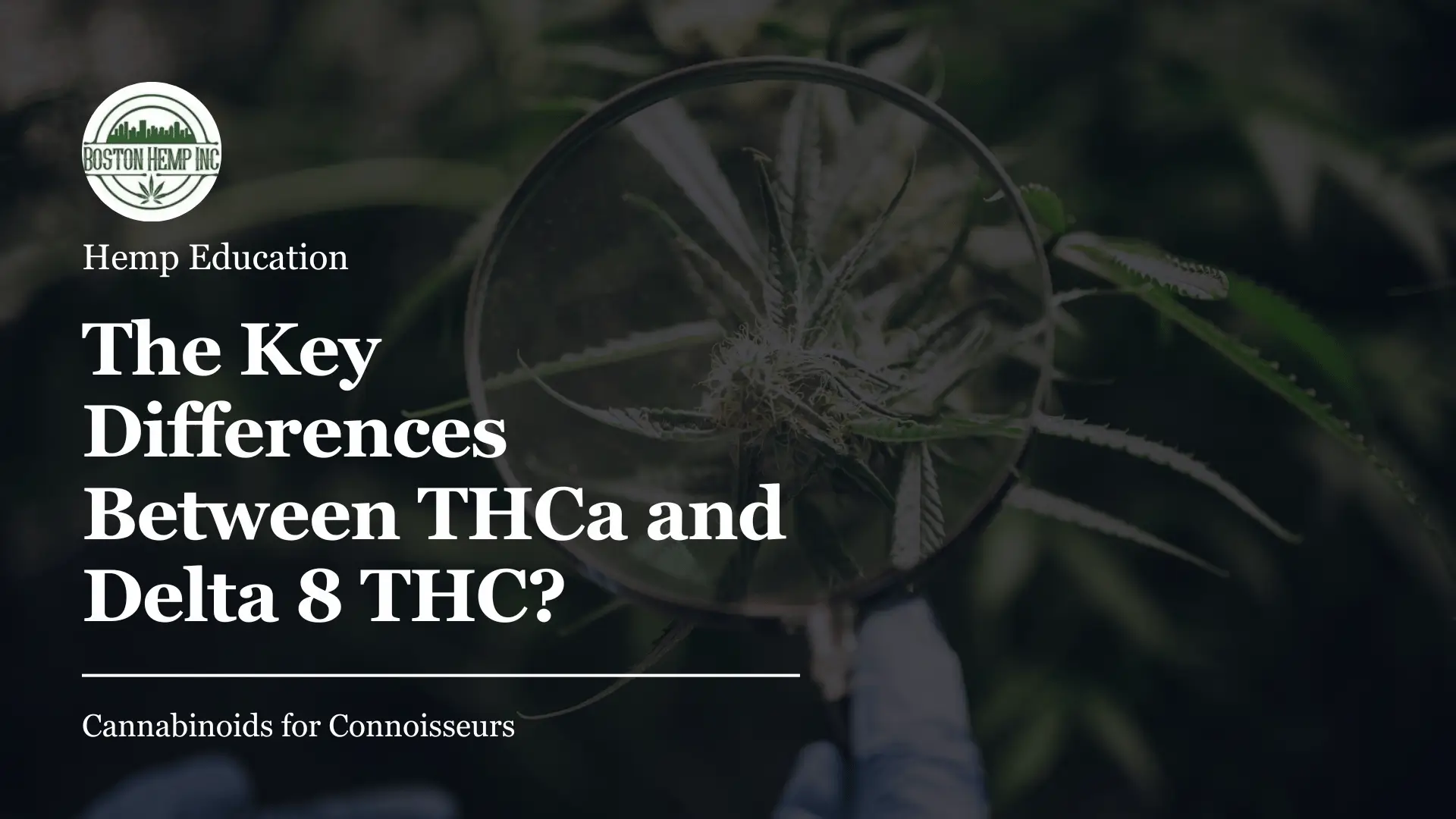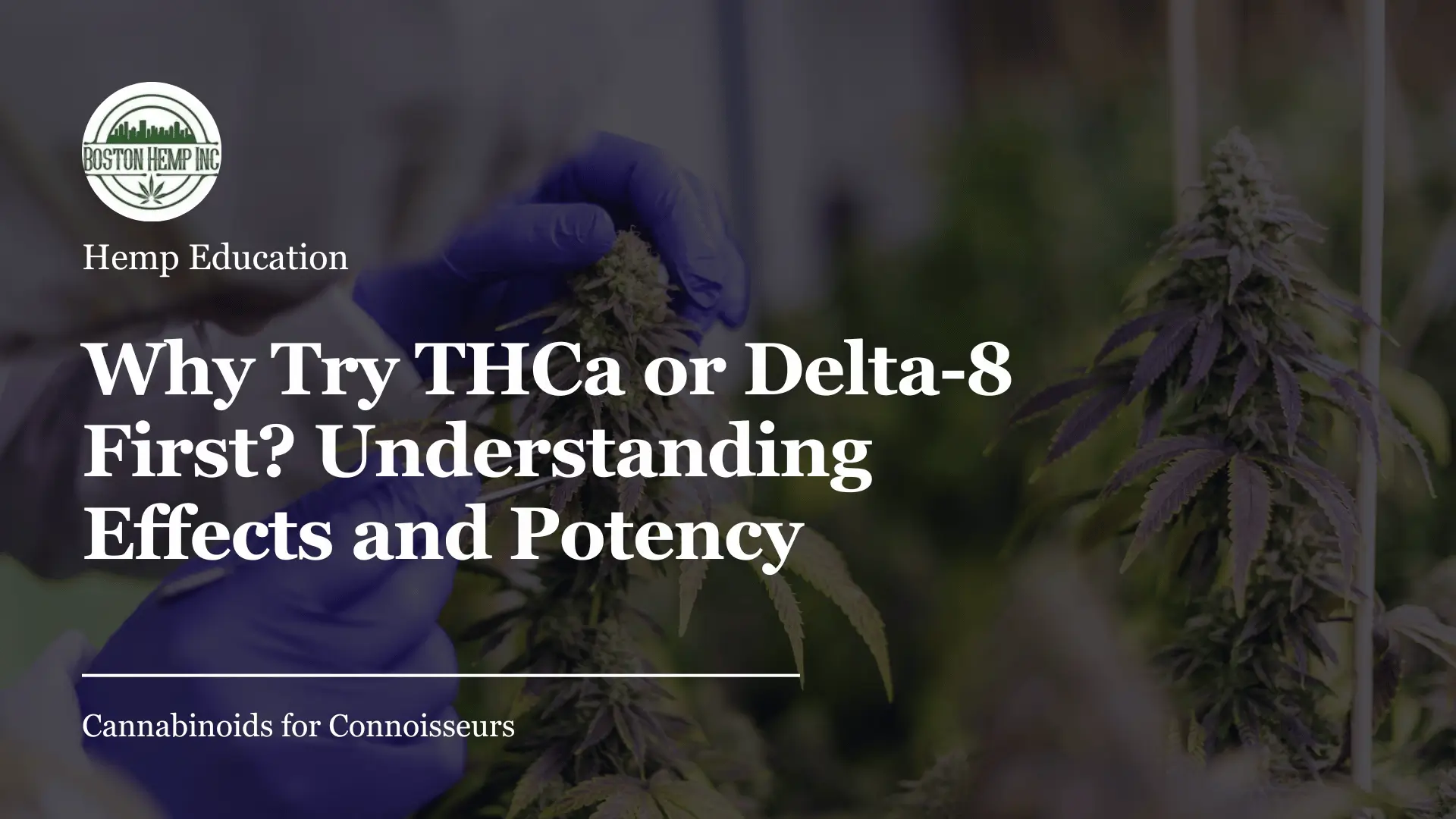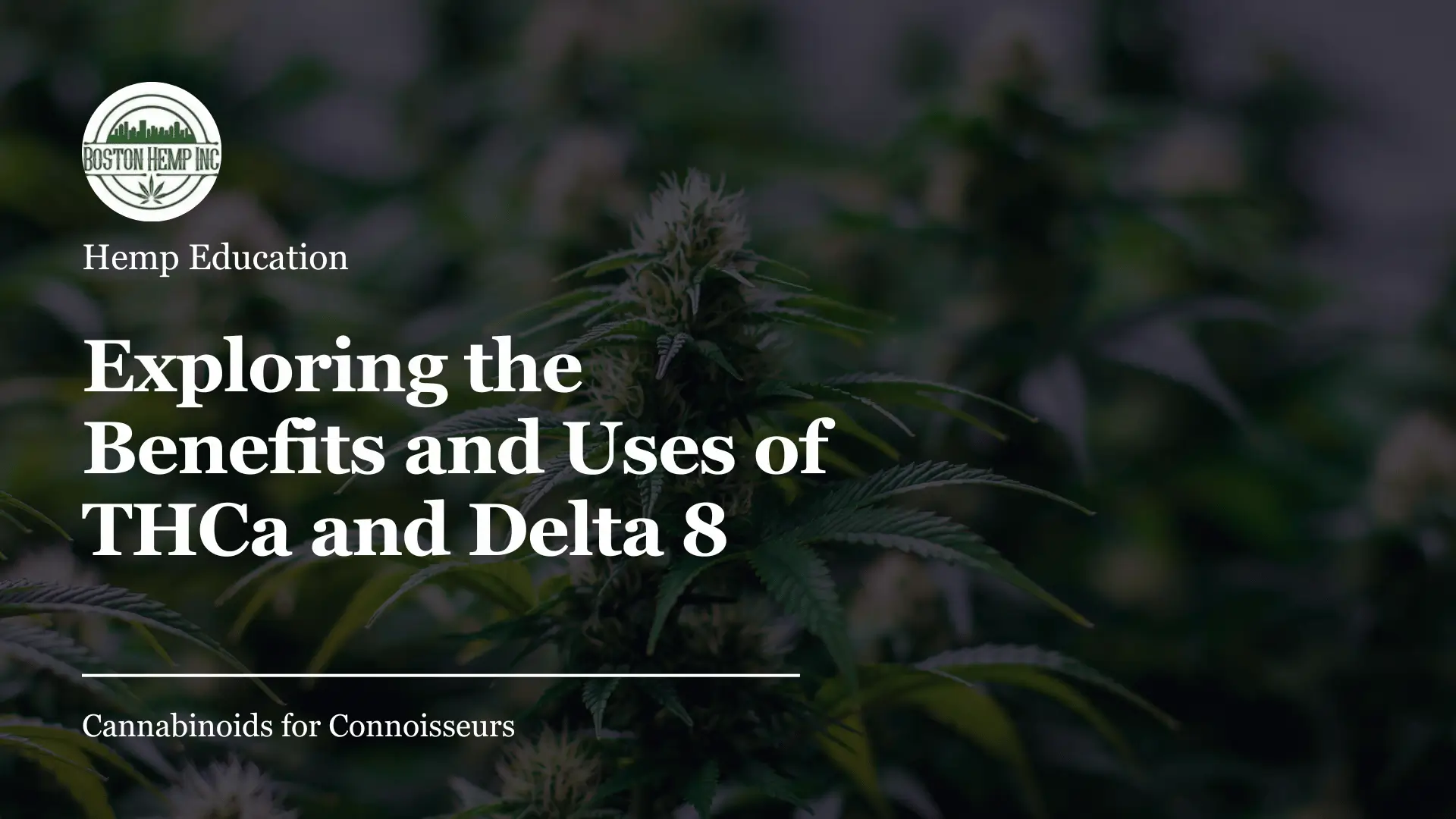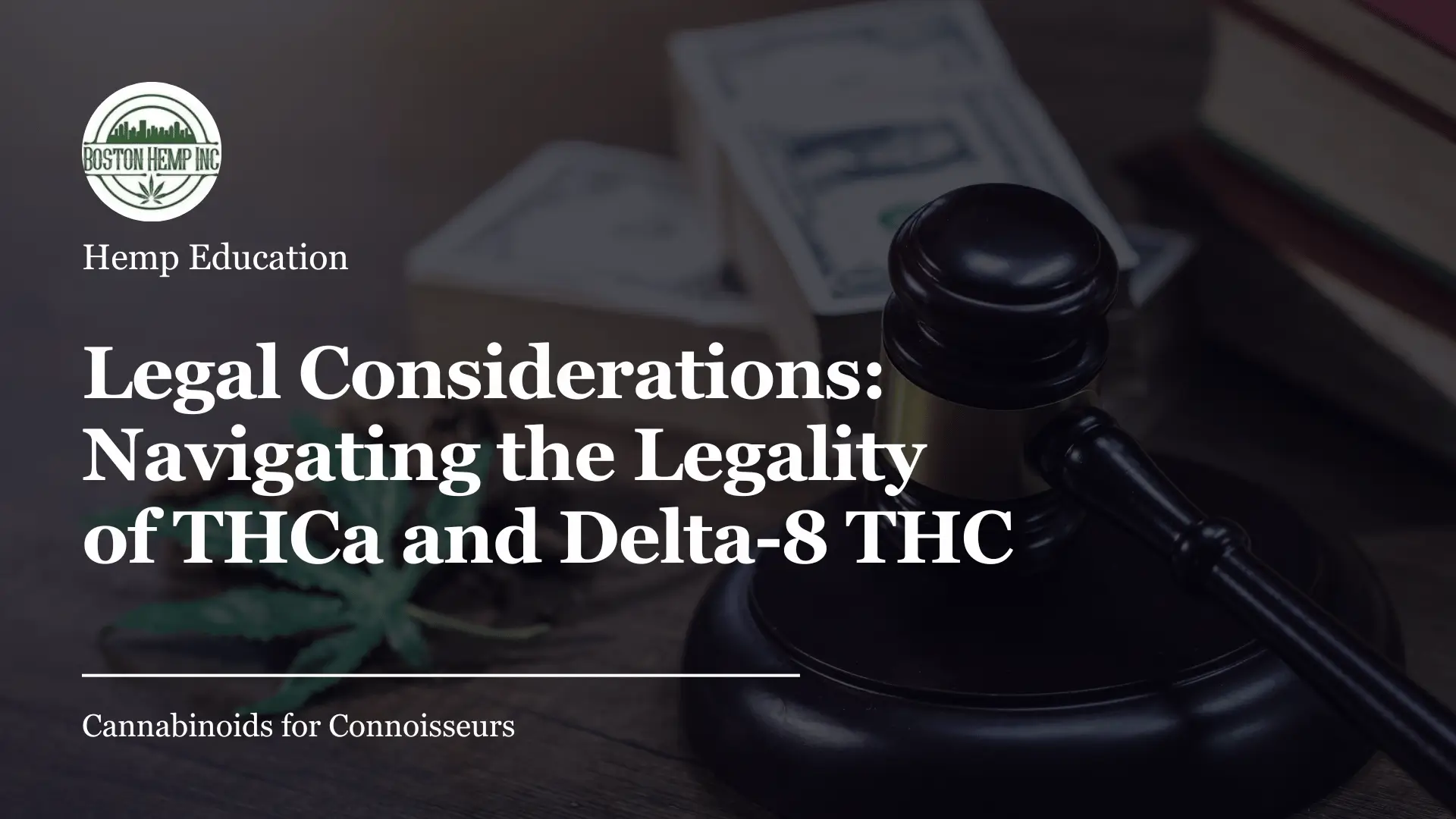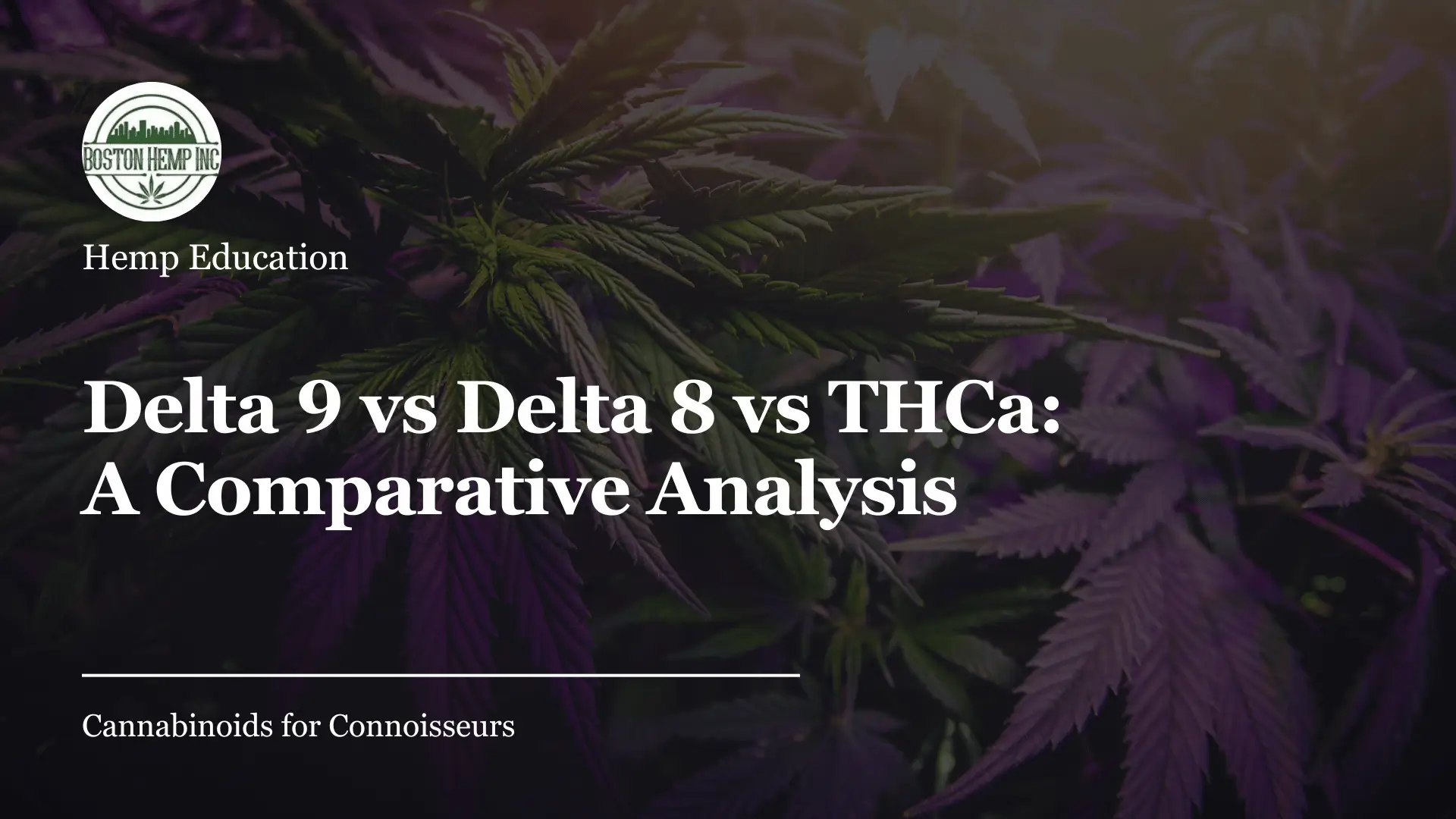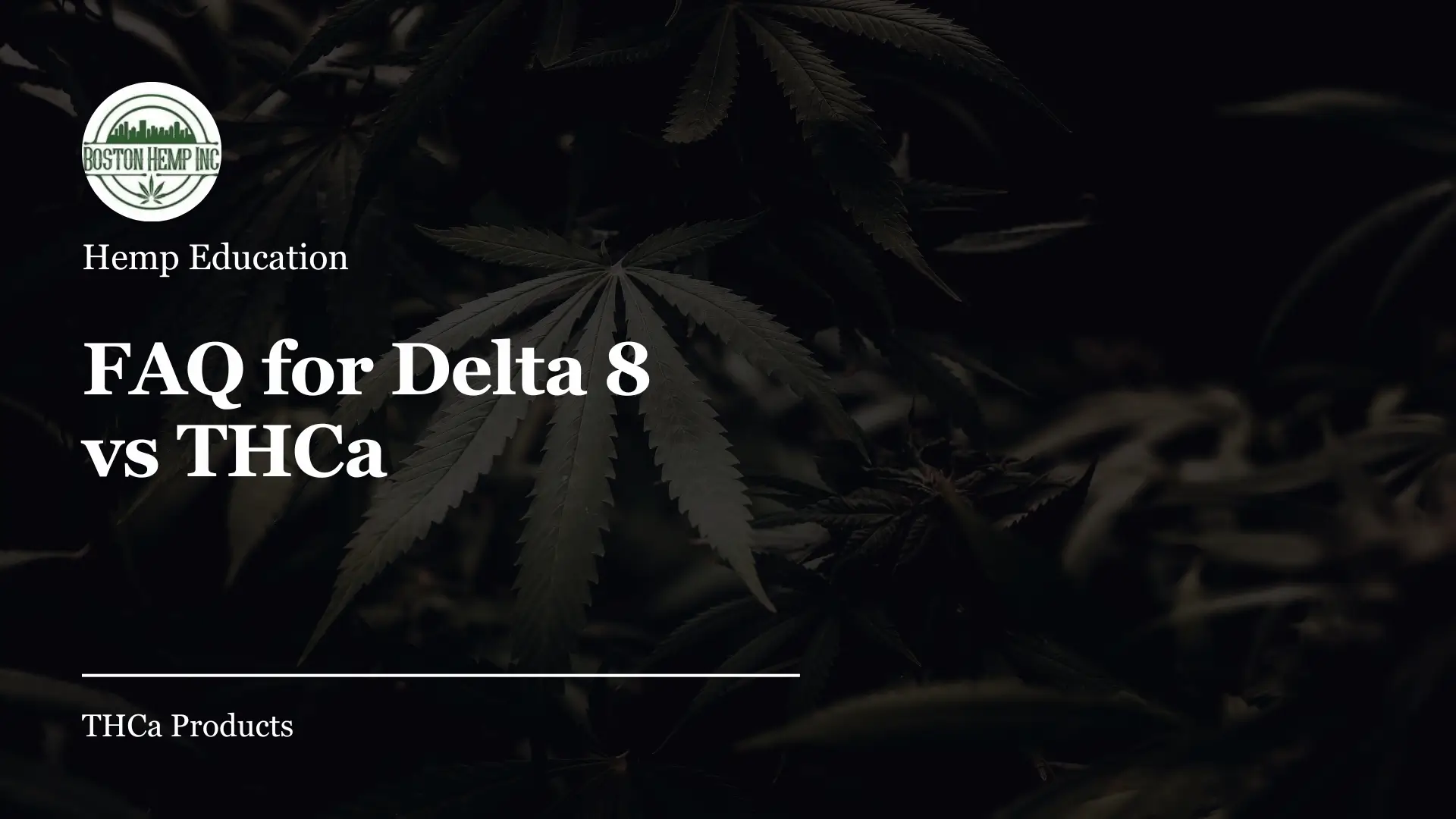In my journey through the dynamic realm of cannabinoids, specifically THCa vs Delta 8, I’ve discovered fascinating contrasts and a plethora of choices.
As a cannabinoid connoisseur, I’ve learned that understanding the difference between THCa and Delta 8 is crucial for those navigating the complexities of the cannabis world.
The emerging online THCA industry has made it possible for individuals to purchase THCa products that effectively transform into THC, providing the famed psychoactive effect upon heating.
Conversely, the Delta 8 industry presents a subtler alternative with its less intoxicating yet still significant effects.
Both offer intriguing cannabinoid choices, capturing the spirit of innovation and adaptability within the cannabis community.
Key Takeaways
- THCa is a non-intoxicating precursor to THC whereas Delta 8 offers a milder psychoactive experience.
- Understanding the difference in effects between THCa and Delta 8 THC can guide personal usage choices.
- The legality of both cannabinoids falls under industrial hemp, per the Farm Bills, with certain considerations.
- Each has sparked a burgeoning industry, with the online THCA industry offering the classic THC high, while the Delta 8 industry caters to a more restrained potency.
- Access to Delta 8 THC is typically easier, due to the availability of converted CBD products.
- Consumer preferences in cannabinoid choices are influenced by desired effects, potency, and legal parameters.
- Engaging with the legal nuances of Delta-8 THC and THCa is essential for responsible consumption.
What Are the Key Differences Between THCa and Delta 8 THC?
In my research on the cannabis industry’s evolving landscape, I’ve observed a burgeoning interest in clarifying the main difference between THCa and delta-8 THC.
Both cannabinoids hail from the Cannabis sativa plant, yet they diverge significantly in their chemical nature and consequent effects on the body.
Let’s delve into the intricacies that set these two compounds apart and explore their distinct identities within the cannabinoid family.
Main Difference Between THCa and Delta 8
The primary distinction centers on the fact that THCa is offered in its raw, acidic form directly from the plant, whereas delta-8 THC is synthesized from CBD.
With THCa residing in the non-psychoactive category, it appeals to those seeking the therapeutic benefits possibly associated with THC, but without the high.
Delta-8 THC, although less potent, still produces a psychoactive experience and could be a bridge for users who are mindful of the intensity of their consumption.
THCa is Non-Psychoactive vs. Delta 8’s Psychoactive Effect
One of the key points to articulate is that THCa is non-psychoactive when left in its natural, acidic state.
It remains ideal for individuals who value the possibility of therapeutic properties intrinsic to THC but who are consciously avoiding the psychoactive effects.
In contrast, delta-8 THC offers a middle ground with its less euphoric impact, which delta-8 THC might be preferred by those wanting a milder experience.
THCa into THC: The Conversion Process
Understanding how to convert THCa into THC is pivotal for both producers and consumers.
Through the process known as decarboxylation, which involves heat application, THCa undergoes a transformation, eliciting the well-known psychoactive effects of THC.
This conversion is a critical characteristic that distinguishes THCa from its counterparts. Smoking or vaporizing are common methods employed by enthusiasts seeking to experience THC’s full psychoactive palette.
Is THCa better than delta 8?
Whether one cannabinoid is better than the other ultimately lies in the user’s intent and preference. For those prioritizing a potent, traditional THC effect, THCa, once converted through heat, fits the bill.
On the other end, consumers inclined towards a more subtle psychoactive touch may find that delta-8 THC products align more closely with their comfort level.
Furthermore, safety becomes a talking point as the natural extraction of THCa promises a level of purity while the chemical conversion required to produce delta-8 THC signals potential quality concerns.
| Cannabinoid | Psychoactive State | Origin | Conversion Requirement | Common Consumer Preference |
|---|---|---|---|---|
| THCa | Non-psychoactive (becomes psychoactive when heated) | Natural form from Cannabis sativa | Heat to convert to THC | Therapeutic potential without high/Full THC effects post-decarboxylation |
| Delta-8 THC | Psychoactive (milder than Delta-9 THC) | Synthetic conversion from CBD | Chemical synthesis from CBD | Milder recreational experience |
Why Try THCa or Delta-8 First? Understanding Effects and Potency
When considering cannabinoid choices for the first time, understanding the effects and potency of each is essential.
Both THCa and Delta-8 THC offer unique experiences and benefits.
My exploration sheds light on their distinct properties, helping you make an informed decision whether you’re an experienced consumer or a newcomer to the cannabis landscape.
Effects of THCa vs Effects of Delta 8
**THCa** is known for its **potential medicinal effects**, such as providing anti-inflammatory benefits and **less potent than Delta-9 THC** when it comes to its intoxicating effects.
However, don’t be fooled—once heated, or decarboxylated, the **effects of THCa** become quite significant, showcasing its true potency which mirrors that of Delta-9 THC.
On the other hand, **consuming Delta 8** offers a different experience. While it does induce psychoactive effects, they are recognized as being more subdued.
The **effects of Delta 8** are characterized by a calming and clear-headed high, ideal for those who seek to maintain a sense of control over their cannabis experience.
THCa Potency Compared to Delta 8 THC
The potency of these cannabinoids is a critical factor when choosing which to try first.
Before decarboxylation, **THCa potency** is negligible because it doesn’t produce psychoactive effects in its raw state.
Yet, the transformation that occurs when you **take THCa** through heat exposure is profound, unlocking a powerful, psychoactive profile.
In comparison, Delta 8 is inherently **less potent than Delta-9 THC**, making it an approachable option for those concerned about overwhelming effects.
Its lower potency translates to a milder high—an enticing middle ground for many users.
THCa and Delta-8: Which is Best for Beginners?
For beginners, the choice between THCa and Delta 8 hinges on the kind of introduction to THC they are seeking. Delta 8’s gentler impact makes it a welcoming entry point for those new to cannabis.
ts milder psychoactive effects provide a comfortable initiation, easing users into the world of cannabinoids.
In contrast, THCa might be better saved for those who are ready to jump straight into the deep end with the full, potent effects of THC after its conversion.
Knowing your preferences and tolerance levels will guide you in your decision, whether you’re curious about Delta 8’s milder approach or ready to **take THCa** and experience the full dynamism of its effects.
Exploring the Benefits and Uses of THCa and Delta 8
As we dive into the cannabis world, the nuanced benefits of cannabinoids like THCa and Delta 8 become clear.
Both offer unique advantages for health and recreational enjoyment, with distinct properties that cater to various needs and uses.
Recognizing their potential can help us make informed choices and integrate these compounds into our wellness or recreational routines responsibly.
Benefits of THCa for Health and Wellness
The non-psychoactive cannabinoid THCa is gaining attention for its potential in health and wellness spheres.
Studies on the effects of THCa point to an impressive profile that includes anti-inflammatory action, which could offer relief for those with chronic pain or inflammatory conditions.
Emerging research has also highlighted its neuroprotective properties, suggesting that THCa could play a role in safeguarding against the progression of various neurological disorders.
For those looking to consume THCa, juicing raw cannabis leaves or incorporating supplements into daily routines allows for a direct intake of this cannabinoid, which might significantly contribute to overall well-being.
Delta 8 THC: Recreational and Medicinal Advantages
The buzz around delta 8 products isn’t just due to their legality or milder high.
Consumers report experiencing a sense of calm and slight euphoria, deeming it attractive for recreational use of Delta 8.
Medically, the anti-nausea delta 8 qualities suggest it could aid in managing symptoms associated with certain treatments and conditions.
Because of its less intense psychoactive impact, delta 8 is a viable option for those seeking the benefits of THC without overwhelming effects.
How to Use THCa and Delta 8 Products Safely
While the benefits of THCa and delta 8 are compelling, safety is of paramount importance when using any cannabis-derived products.
Users should always start with small doses to monitor their body’s response, especially with delta 8 due to its synthetic derivation, as this necessitates careful consideration.
Consulting healthcare providers is a prudent step for individuals with health conditions or those on medication, ensuring that the introduction of these cannabinoids is done without adverse effects.
Through responsible use and mindful dosing, one can safely explore the therapeutic and recreational landscapes these compounds offer.
Legal Considerations: Navigating the Legality of THCa and Delta-8 THC
As a seasoned journalist closely following the evolving narrative of cannabinoids, I’ve noted the increasing discussion around the legality of THCa and legality of delta-8 THC.
These compounds, while chemically distinct, are enveloped within regulatory frameworks that define their accessibility and use.
I invite readers into a careful examination of the legal landscape dictated by industrial hemp classifications and the Farm Bills.
Legality of THCa: Where Does It Stand?
I’ve observed that amidst the various substances extracted from the cannabis plant, THCa finds itself in a unique position.
Under the Farm Bills, as long as the concentration of delta 9 THC remains at or below the 0.3% threshold, THCa is federally legal.
Hence, THCa products circulating in the market are typically compliant with these regulations, assuring their legal status.
The Current Status of Delta-8 THC Across Different Jurisdictions
Turning my attention to delta-8 THC, its scenario is somewhat more nuanced.
Despite being a derivative of legal CBD, it’s the process of its transformation that has attracted scrutiny.
Delta-8 THC straddles a fine line drawn by regulatory authorities, with its legality varying intensely from state to state. Here’s how I’ve seen it play out:
| State | Legality of Delta-8 THC | Notable Regulations |
|---|---|---|
| New York | Restricted | Synthetic cannabinoid ban includes delta-8 THC |
| Colorado | Illegal | All isomers of THC are prohibited |
| Florida | Legal | Aligns with federal law under the Farm Bill |
| California | Legal | Delta-8 products subject to state cannabis taxes |
Understanding the intricacies of state by state legislation becomes pivotal in responsibly navigating the delta-8 THC market.
How the Legality of THCa and Delta-8 Impacts Consumers
The crux of the matter for consumers is balancing the promising benefits of cannabinoids like THCa and delta-8 THC against the legal considerations that differ across jurisdictions.
The key lies in staying informed, doing due diligence, and approaching these compounds with a blend of enthusiasm and caution.
As legislation evolves, it’s my responsibility to ensure that enthusiasts are updated with the most accurate and current information, for their safety and legal adherence.
Delta 9 vs Delta 8 vs THCa: A Comparative Analysis
In the landscape of cannabinoids, the differences between delta 9 vs delta 8, as well as their relation to THCa, are pivotal for enthusiasts and patients navigating the cannabis family.
As a journalist invested in providing clearer insights, I’ll dissect the properties and the unique legalities each of these compounds carry within the industry.
Difference Between THCa, Delta 8, and Delta 9 THC
THCa, or tetrahydrocannabinolic acid, is known as a precursor to THC, existing chiefly in raw and unprocessed cannabis.
Unlike its active counterpart delta 9 THC, THCa is non-intoxicating.
However, when converted into THC through decarboxylation, which occurs via drying or heating, THCa yields the psychoactive effects commonly associated with cannabis.
Delta 8 THC is akin to delta 9 in its psychoactive nature, but it stands out due to its milder effect profile.
Delta 9 THC vs Delta 8: Effects, Legal Status, and Availability
The effects produced by delta 9 THC are well-documented as being the most potent within the cannabis spectrum.
In contrast, delta 8 offers a more subdued psychoactive experience, which some users prefer for its ability to reduce anxiety while still achieving a high.
While delta 9 THC remains to be the primary cannabinoid associated with cannabis, Delta 8 has risen in popularity as it can be ingeniously converted into THC from hemp-derived CBD, suiting it to a legal loophole that allows for wider distribution and availability.
THCa’s Unique Position in the Cannabis Family
What distinguishes THCa in the cannabis family is its identity as a precursor to THC.
This unique position allows for an individual redirection in use – either as a potential therapeutic non-psychotropic agent in its raw form or as a powerful psychoactive composed after conversion.
THCa encompasses a dual-character that caters to varying user preferences within the cannabis community.
In summary, the exploration of cannabinoids such as THCa and delta 8 THC confronts us with a nuanced understanding of the cannabis family, emphasizing both the chemical journey these compounds undertake and the fluctuating legal frameworks they operate within.
As they stand, delta 9, delta 8, and THCa each present a unique profile of effects and accessibility, making them subjects of continuous interest and conversation within cannabinoid research and consumption cultures.
Best Ways to Consume THCa and Delta-8 Products
As someone deeply embedded in the nuances of cannabinoid consumption, I understand the importance of choosing the right method to experience the desired effects of THCa and delta-8.
With a variety of consumption techniques available, my aim is to guide you towards optimal usage for both therapeutic and recreational purposes.
Let’s delve into how to best consume these products for an experience that aligns with your intentions.
Optimal Methods for Consuming THCa for Desired Effects
The best way to take THCa, particularly for those who value its non-psychoactive therapeutic benefits, is through juicing or supplements.
This common way to consume THCa ensures that decarboxylation doesn’t occur, preserving the compound’s non-psychoactivity.
For those inclined towards the psychoactive effects, THCa must be decarboxylated – a process that can be achieved through smoking or vaping, allowing THCa to convert into THC and activate its full potential.
Delta-8 Consumption Methods: Finding What Works Best for You
On the other hand, delta 8 products—which include vapes, gummies, and infused flowers—offer a straightforward way to take delta 8, with each form catered to individual preference and lifestyle.
Vaping delta 8 stands out for its convenience and ability to modulate dosages effectively, making it an ideal option for both new and experienced users looking for a measure of control over their experiences.
Converting THCa into THC: Techniques and Tips
For those venturing into the realms of conversion, a key tip for transforming THCa into THC is to apply controlled heat evenly.
Advanced methods like dabbing or using sophisticated vaporizers can offer a precise temperature setting, which is critical to achieving this transformation effectively.
Ensuring accurate temperature control helps in unlocking the potent effects of THC derived from THCa without compromising the integrity of the cannabinoids.
FAQ for Delta 8 vs THCa
Q: What’s the difference between THCa and Delta-8 THC?
A: THCa, or tetrahydrocannabinolic acid, is a non-psychoactive precursor to delta-9 THC, the main form of THC found in cannabis.
Delta-8 THC, on the other hand, is a minor cannabinoid that is less potent than delta-9 THC but offers similar psychoactive effects.
The key difference is that THCa is not psychoactive until it is converted through decarboxylation, whereas delta-8 THC is psychoactive in its natural form.
Q: How are THCa and Delta-8 made?
A: THCa is naturally occurring in the cannabis plant and is extracted directly from raw cannabis material, such as THCa flower or THCa diamonds, which are crystallized forms of THCa.
Delta-8 THC, however, is often synthesized from CBD extracted from hemp through a chemical conversion process, as it occurs in much smaller quantities in the cannabis plant.
Q: What is the best way to take THCa or Delta-8?
A: The best way to take THCa is typically in its raw form, for example by juicing raw cannabis leaves that contain THCa or consuming products like THCa diamonds.
To activate its psychoactive potential, THCa must be heated through smoking, vaping, or cooking.
For Delta-8 THC, popular methods include vaping, dabbing, or consuming edibles, as it’s already psychoactive and does not require decarboxylation.
Q: Can I buy THCa and Delta-8 products legally?
A: The legality of THCa and Delta-8 THC products can vary significantly depending on where you live.
THCa is generally considered legal in its raw form since it’s non-psychoactive.
However, once heated and converted to THC, it falls under the same legal restrictions as delta-9 THC in many jurisdictions.
Delta-8 THC occupies a legal gray area; it’s federally legal if derived from hemp, but some states have specifically banned or regulated it.
Always check your local laws before attempting to buy THCa or Delta-8 products.
Q: Are there any health benefits to taking THCa or Delta-8?
A: Many users and some preliminary studies suggest potential health benefits for both THCa and Delta-8 THC.
THCa is believed to have anti-inflammatory, neuroprotective, and anti-nausea properties.
Delta-8 THC is often reported to aid with anxiety, pain, and nausea as well, but with a lower psychoactive profile than delta-9 THC.
However, more research is needed to fully understand their medical benefits and safety profiles.
Q: What is THCa flower and how is it used?
A: THCa flower refers to the raw, unprocessed flower of the cannabis plant that is rich in THCa, the non-psychoactive precursor to THC.
Users can consume THCa flower in several ways, including juicing, making teas, or using it in raw cannabis edibles.
When heated, as in smoking or vaping, THCa converts to psychoactive THC, providing the traditional effects associated with cannabis use.
Q: How is the potency of THCa compared to Delta-8 THC?
A: In its raw form, THCa is non-psychoactive and does not produce the “high” associated with THC.
Once decarboxylated, THCa becomes delta-9 THC, which is typically more potent than Delta-8 THC.
Delta-8 is considered less potent than both delta-9 THC and the converted form of THCa, offering a more moderate psychoactive experience.
This makes Delta-8 THC a preferred option for those seeking milder effects or those sensitive to the stronger effects of delta-9 THC.
Q: Is it safe to take THCa and Delta-8 together?
A: Combining THCa and Delta-8 THC may produce unique effects since THCa itself is non-psychoactive but can convert into psychoactive THC when heated.
Delta-8 THC provides its psychoactive effects without conversion.
If you choose to combine them, start with low doses to gauge how your body reacts to the mixture.
As always, consult a healthcare professional before beginning any new supplement regimen, especially if you have underlying health conditions or are taking other medications.
Other related questions:

